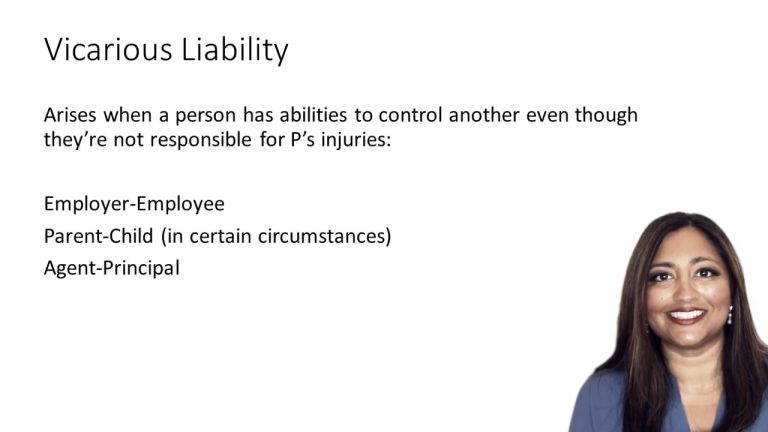SmartBrief
Confirm favorite deletion?
Torts Keyed to Duncan
Bell v. VPSI, Inc.
Citation:
205 S.W.3d 706 (Tex. App. 2006)Facts
Fort Worth Transportation Authority (defendant) leased vans from VPSI, Inc. (defendant) as part of its vanpool program, in an effort to provide a cost-effective and environmentally efficient alternative for commuters. Homer Bell (defendant) entered into an agreement with the defendants to be a driver in the vanpool program for daily commutes to his corporate employer, Lockheed. Per the driving agreement, Homer was to maintain the van, not drive outside a 200-mile radius of his home with the van, and was considered an independent contractor. On a rainy Saturday, Homer drove the van while completing several errands with his wife, Linda Bell (plaintiff). On their way home, the van hydroplaned on a wet roadway and crashed the van into a tree. The plaintiff sued the defendants for her injuries from the accident, alleging VPSI and the Transportation Authority were vicariously liable for Homer’s negligence under the doctrine of respondeat superior. VPSI and the Transportation Authority moved for summary judgment.
Only StudyBuddy Pro offers the complete Case Brief Anatomy*
Access the most important case brief elements for optimal case understanding.
*Case Brief Anatomy includes: Brief Prologue, Complete Case Brief, Brief Epilogue
- The Brief Prologue provides necessary case brief introductory information and includes:
Topic:
Identifies the topic of law and where this case fits within your course outline.Parties:
Identifies the cast of characters involved in the case.Procedural Posture & History:
Shares the case history with how lower courts have ruled on the matter.Case Key Terms, Acts, Doctrines, etc.:
A case specific Legal Term Dictionary.Case Doctrines, Acts, Statutes, Amendments and Treatises:
Identifies and Defines Legal Authority used in this case.
- The Case Brief is the complete case summarized and authored in the traditional Law School I.R.A.C. format. The Pro case brief includes:
Brief Facts:
A Synopsis of the Facts of the case.Rule of Law:
Identifies the Legal Principle the Court used in deciding the case.Facts:
What are the factual circumstances that gave rise to the civil or criminal case? What is the relationship of the Parties that are involved in the case.Issue(s):
Lists the Questions of Law that are raised by the Facts of the case.Holding:
Shares the Court's answer to the legal questions raised in the issue.Concurring / Dissenting Opinions:
Includes valuable concurring or dissenting opinions and their key points.Reasoning and Analysis:
Identifies the chain of argument(s) which led the judges to rule as they did.
- The Brief Prologue closes the case brief with important forward-looking discussion and includes:
Policy:
Identifies the Policy if any that has been established by the case.Court Direction:
Shares where the Court went from here for this case.

 9m 14s
9m 14s